Your guilt-free alternatives to traditional Lunar New Year delicacies
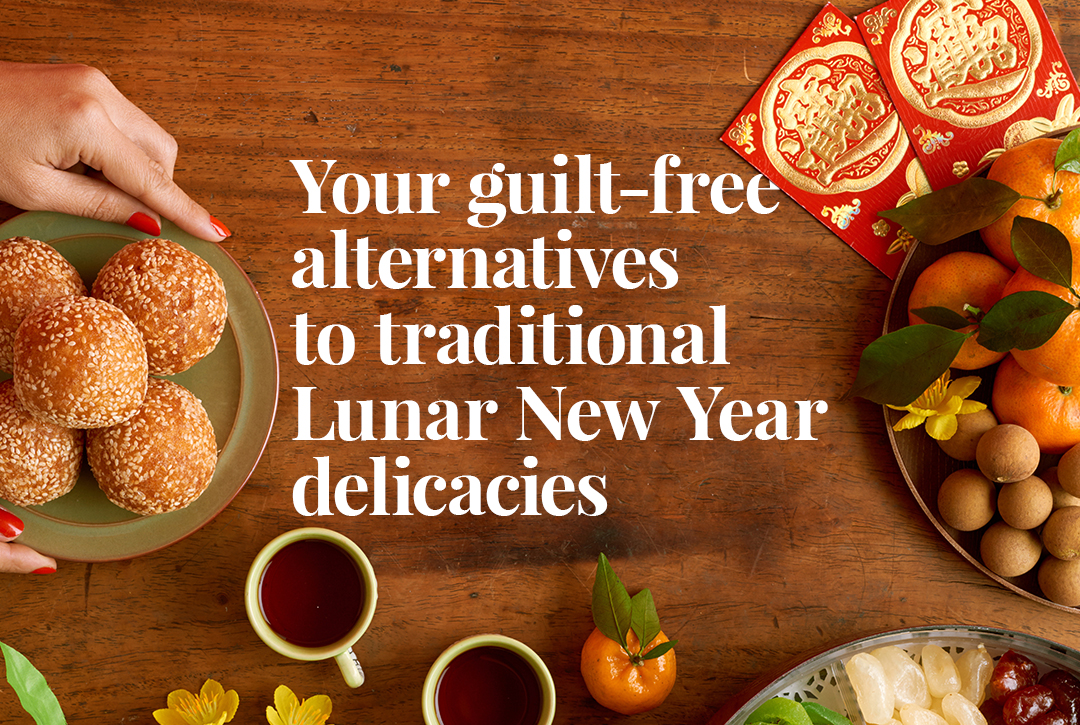
When you think about Singaporean culture, the topic of food and eating cannot be excluded. Deeply embedded in our culture, the act of preparing and consuming food is an act that not only bonds people together but it is a big part of our cultural identity.
Lunar New Year is one festivity where food takes centre stage, it is the highlight of the festival, one which is a source of pride for many people as they celebrate the Lunar New Year. The reunion dinner feast is a sacred tradition still kept by many Chinese families today, but beyond the dinner even if you do not celebrate the Lunar New Year, you would be familiar with all the different snacks that are a staple favourite for many.
While we indulge in all these festive foods, did you know that some of these specialty and traditional delicacies are also symbolic? Certain snacks and dishes are believed to bring good luck for the year. Whether you are celebrating this festive season or not, here are some Lunar New Year delicacies you may come across and how you can enjoy them while making sure they are a healthy alternative.
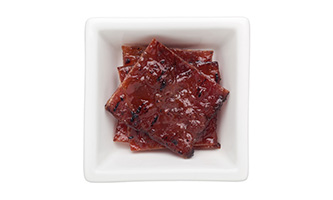
Bak Kwa
Bak Kwa is a crowd favourite during the Chinese New Year season, but did you know the history of this delicacy came from humble beginnings? Bak Kwa was created at a time where poverty in China was widespread and meat was considered as a luxury. Hence, meat was only reserved during special occasions and air-dried to last longer throughout the celebrations, thus the name Bak Kwa, which means dried meat in the Hokkien dialect.
While Bak Kwa is well-liked among adults and children alike, did you know that just one piece of Bak Kwa contains almost 300kcal and 32g of sugar? One need to brisk walk for at least 100mins to burn off just one piece of this snack.
This year, why not consider steamed or grilled chicken breast, coated with a thin layer of honey or barbeque sauce as a healthy substitute? This savoury and candied homed-cooked alternative contains much lesser fat, salt and sugar.
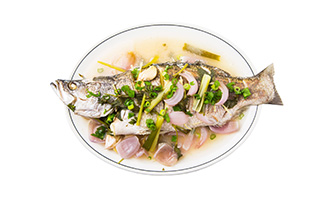
Fish
A common festive greeting is “年年有余” (nián nián yǒu yú), to which the last word sounds phonetically similar to Mandarin word for fish. This auspicious greeting when translated is a wish for one to have an abundance every year. Serving and eating a fish whole symbolises a complete year and an overflow of prosperity.
There are many ways to cook fish but the healthiest way is by boiling or steaming. By boiling or steaming, you also reduce the amount of oil used during cooking. For a healthy digestive boost, try to include ginger, snow peas and/ or turmeric. They are good sources of vitamins, dietary fibre and anti-inflammatory properties.
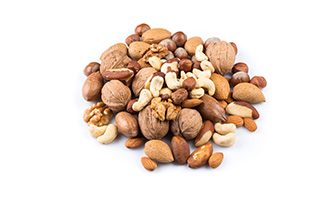
Peanuts
Did you know peanuts is also known as the “longevity nuts”? The name in mandarin, 花生 (huā shēng), sounds like the birth of a flower, which when loosely translated signifies spring which conveys longevity, good health, vitality and growth.
Peanuts when processed and eaten in large quantities becomes an unhealthy snack as it is high in calories and contain an excessive amount of sugar and salt. This can also cause water retention and bloating.
Fortunately, there are also other nuts that symbolise for longevity, health and prosperity. You can create your own healthy cocktail of walnuts, almonds, macadamias and pistachios without deviating from the traditional symbolism. However, do remember that it is still best to eat nuts raw and in moderation.
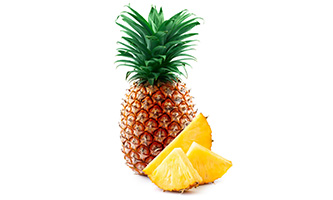
Pineapple tarts
Pineapple in the Hokkien and Cantonese dialect (ong/ wong lai) sounds and conveys the idea of ushering prosperity in. As such, pineapple in the Chinese culture is often a symbol of wealth, fortune, good luck and prosperity. It is seen in many Chinese traditions such as the rolling of pineapples into a new home for blessings and of course, eating pineapple tarts during Chinese New Year.
Did you know just two pieces of pineapple tarts contains 163kcal and 12g of sugar? Instead of pineapple tarts, why not swap these for fresh or dried pineapples which contain more vitamins and less sugar?
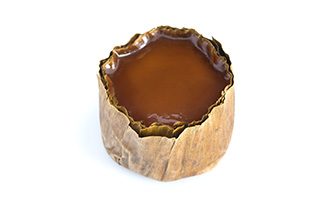
Sweet rice cakes (Nián Gāo)
The mandarin word for cake, 糕 (gāo), sounds like the word for high, 高 (gāo), and the word 年 (nián) means year. When combined, 年糕 (nián gāo) signifies soaring to greater heights in the new year, yearly improvement, moving to higher position or higher business grounds and success.
Sweet rice cakes are made from glutinous flour and brown sugar, often dipped into a batter and deep fried. As the name suggest, just ¼ portion of it (approximately 106g) contains a whooping 244kcal and 56g of sugar! This is definitely one delicacy that screams portion control.
A healthier twist to this dessert snack is by steaming or baking it. If you are feeling adventurous, try explore using healthy ground rice flour or wheat flour and substitute your sugar by using fruit purees instead.
Staying healthy during the festive season can seem challenging. So here are additional tips to enjoying a healthier Lunar New Year whether you are preparing or attending a friend or colleague’s house visitation.
- Purchase food or snacks with the healthier choice symbol.
- Go for plain water, traditional tea or drinks with less sugar instead of sweetened and fizzy beverages.
- Do not go to a house visit on a hungry and empty stomach. This helps to prevent binge eating.
- Exercise portion control and eat according to recommended serving sizes.
- Serve or take more fruits. Keep yourself busy peeling mandarin oranges can help prevent you from reaching out for the snack platter.
- Choose or include more fibre in your food to prevent constipation.
- Eat and drink slower. This gives your body time to register it is full and prevent over-eating. Not to mention this also helps to deter your enthusiastic aunt from topping up your plate again and again.
- Exercise while you visit. Staying active and walking short distances while going from one destination to another helps to burn some of the indulgence you have taken.
A healthy outside begins from the inside. As we revel in the reunions and gatherings, let’s also enjoy the festive season without over-compromising on our health through proper diet and nutritional control.

















